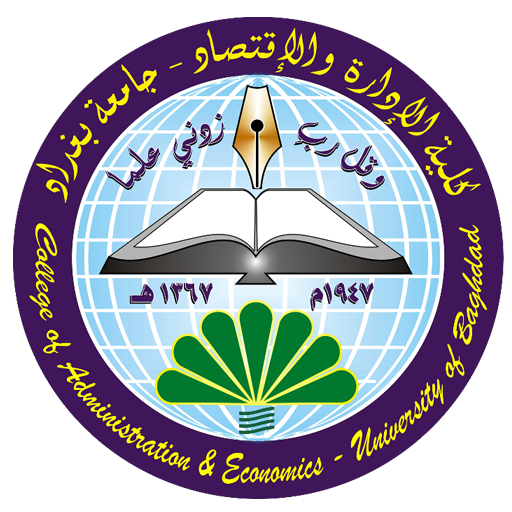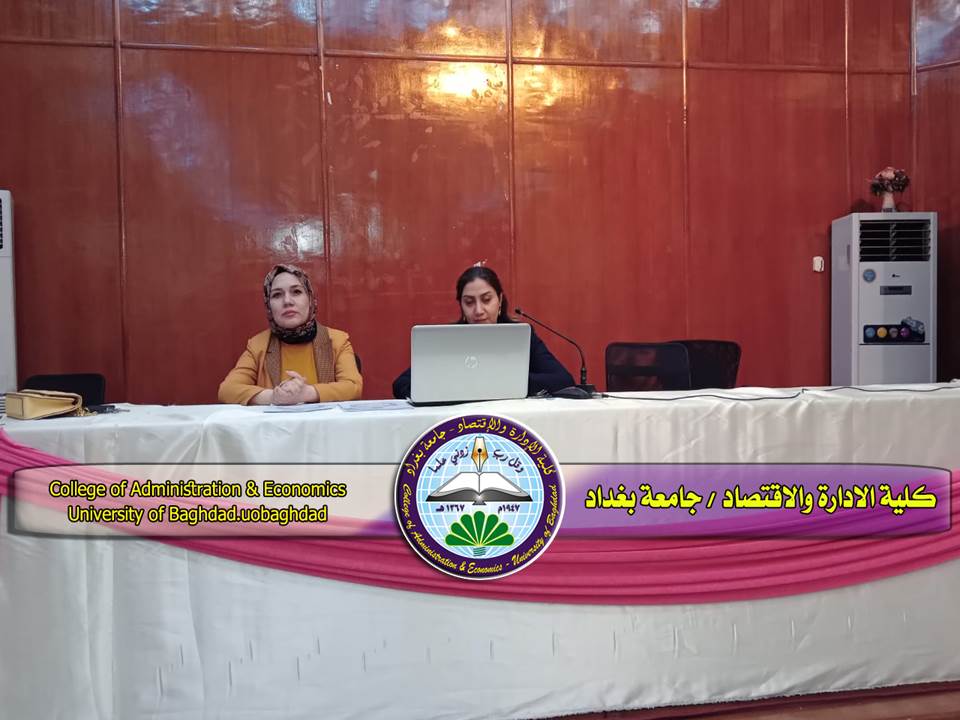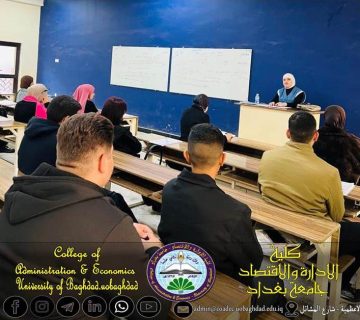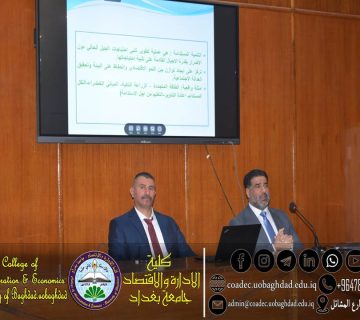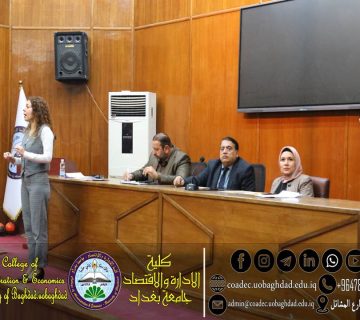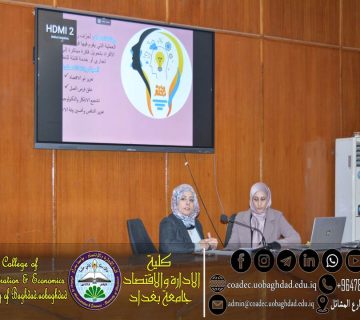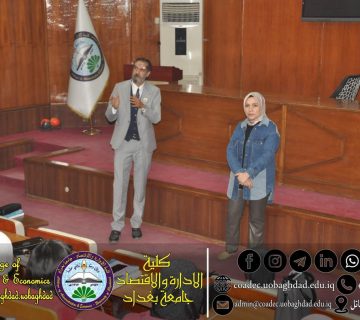The Continuing Education Center in the College of Administration and Economics, in cooperation with the Department of Business Administration, organized a scientific symposium entitled (The Crime of Electronic Extortion against Women, Cause and Effect) presented by M.D. Suha Jamal Mawlood, Department of Business Administration, and M.M. Nadia Shaker Hussain, Head of the Continuing Education Center.
The offence of electronic extortion is considered one of the serious crimes that pose a threat to the security of society, in addition to its impact on the social aspects as it leads to the disintegration of the family that presents problems which may lead to divorce, the loss of morale, and the appearance of psychological disorders (anxiety, fear, depression). This violation is difficult to prove, because it is a contemporary crime, furthermore it is commited through modern technology.
The symposium concluded with a set of recommendations, the most important of which is:
- Emphasizing the concept of self-confidence by communicating important information for the purpose of organizing the thoughts of an individual’s life that lead to regulating the control of feelings, verbal or motor-practical behavior, and then modeling personality and determining destiny.
- Illuminating the concept of freedom accurately (act on what you want without infringing on the limits of others’ freedom).
- Establishing extensive media campaigns to cover the issue and spread a culture of beneficial interactions with social media programs.
- Periodic and intensive announcement of the fate and punishment of blackmailers, in order to serve as an example to others, and to limit tampering with the reputation of others and invading their privacy.
- Avoid accepting friend requests from unknown people.
- Not responding or replying to any conversation received from an unknown source.
- Avoid sharing your personal information on the Internet.

